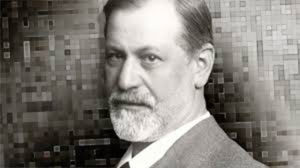A propos de la pulsion épistémophilique
Résumé
Dès ses premiers travaux, Mélanie Klein montrait l'importance de l'épistémophilie. C'est avec Bion que la conceptualisation de la pulsion épistémophilique prend toute son ampleur : K (knowledge) apparaît avec L (love) et H (hate) comme pierre de fondation de l'appareil psychique, et même on peut aisément voir, dans le travail analytique, que K régit l'amour et la haine.
Entre le sujet et le savoir auquel il aspire, toujours un objet relationnel s'interpose qui parfois, favorise l'épanouissement de la pulsion épistémophilique en exerçant la fonction de bon guide, et parfois l'inhibe et produit l'apparition de minus K. C'est ainsi que K se déploie sur une scène triangulée, qu'il ne faut pas confondre avec la scène oedipienne.
Samenvatting
Reeds in het begin van haar werk belichtte Melanie Klein het belang van de epistemophilie. Met Bion krijgt de begripsvorming over de drang naar kennis volop gestalte : K (kennis, knowledge) komt daar naar voor, samen met L (liefde, love) en H (haat, hate) als hoeksteen van het psychisch apparaat. Bovendien kan men zich gemakkelijk rekenschap geven van het feit dat in het analytisch werk K de liefde en de haat regelt.
Tussen het subject en het weten waarnaar hij streeft, zit altijd een relationnel object. Nu eens zal dit object het ontluiken van de drang naar kennis bevorderen door de functie van een deugdelijke gids te vervullen ; dan weer zal het die drang afremmen en aanleiding geven tot het opduiken van minus K. Op die manier ontplooit K zich op een driehoeksscène die men niet mag verwarren met de oedipale scène.
Summary
From the beginning of her work, Melanie Klein demonstrated the importance of epistemology. It is with Bion that the conceptualisation of the epistemophilic drive attained its full dimension : K (knowledge) along with L (love) and H (hate) appeared as the foundation stone of the psychic apparatus and it is also clearly visible in the work of analysis that K rules both love and hate.
Between the subject and the knowledge which is the object of its aspirations, a relational object always interposes itself, which, by functioning as a good guide, sometimes favours the development of the epistemophilic drive and sometimes inhibits it, fostering a manifestation of minus K. It is in this way that K unfolds itself upon a scene of triangulation which should not be confused with the Oedipal drama.





